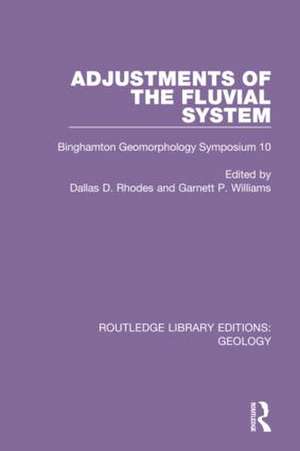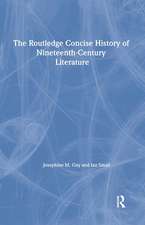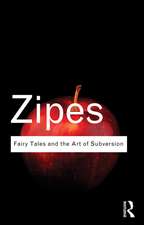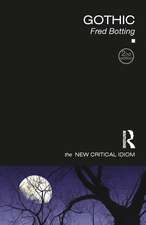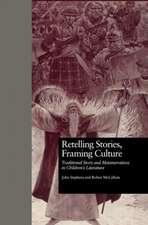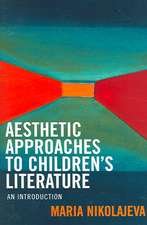Routledge Library Editions: Geology: Routledge Library Editions: Geology
Autor Variousen Limba Engleză Hardback – 22 mai 2020
Din seria Routledge Library Editions: Geology
-
 Preț: 281.41 lei
Preț: 281.41 lei - 38%
 Preț: 773.34 lei
Preț: 773.34 lei -
 Preț: 322.97 lei
Preț: 322.97 lei -
 Preț: 316.83 lei
Preț: 316.83 lei -
 Preț: 457.15 lei
Preț: 457.15 lei -
 Preț: 349.80 lei
Preț: 349.80 lei -
 Preț: 329.88 lei
Preț: 329.88 lei -
 Preț: 322.97 lei
Preț: 322.97 lei -
 Preț: 349.80 lei
Preț: 349.80 lei -
 Preț: 350.56 lei
Preț: 350.56 lei -
 Preț: 436.14 lei
Preț: 436.14 lei -
 Preț: 349.80 lei
Preț: 349.80 lei -
 Preț: 317.42 lei
Preț: 317.42 lei - 36%
 Preț: 600.93 lei
Preț: 600.93 lei -
 Preț: 360.80 lei
Preț: 360.80 lei -
 Preț: 322.97 lei
Preț: 322.97 lei -
 Preț: 436.14 lei
Preț: 436.14 lei - 39%
 Preț: 684.05 lei
Preț: 684.05 lei - 36%
 Preț: 599.41 lei
Preț: 599.41 lei -
 Preț: 329.88 lei
Preț: 329.88 lei - 36%
 Preț: 601.53 lei
Preț: 601.53 lei - 36%
 Preț: 525.26 lei
Preț: 525.26 lei -
 Preț: 312.57 lei
Preț: 312.57 lei -
 Preț: 334.69 lei
Preț: 334.69 lei - 33%
 Preț: 685.38 lei
Preț: 685.38 lei -
 Preț: 331.40 lei
Preț: 331.40 lei - 38%
 Preț: 772.68 lei
Preț: 772.68 lei - 34%
 Preț: 680.73 lei
Preț: 680.73 lei - 36%
 Preț: 745.13 lei
Preț: 745.13 lei - 38%
 Preț: 774.14 lei
Preț: 774.14 lei
Preț: 17827.08 lei
Preț vechi: 28412.39 lei
-37% Nou
Puncte Express: 26741
Preț estimativ în valută:
3412.29€ • 3707.75$ • 2868.18£
3412.29€ • 3707.75$ • 2868.18£
Carte tipărită la comandă
Livrare economică 21 aprilie-05 mai
Preluare comenzi: 021 569.72.76
Specificații
ISBN-13: 9780367185596
ISBN-10: 0367185598
Pagini: 10410
Dimensiuni: 156 x 234 mm
Greutate: 0.45 kg
Ediția:1
Editura: Taylor & Francis
Colecția Routledge
Seria Routledge Library Editions: Geology
Locul publicării:Oxford, United Kingdom
ISBN-10: 0367185598
Pagini: 10410
Dimensiuni: 156 x 234 mm
Greutate: 0.45 kg
Ediția:1
Editura: Taylor & Francis
Colecția Routledge
Seria Routledge Library Editions: Geology
Locul publicării:Oxford, United Kingdom
Public țintă
AcademicCuprins
1. Adjustments of the Fluvial System: Binghamton Geomorphology Symposium 10 Edited by Dallas D. Rhodes and Garnett P. Williams 2. Aeolian Geomorphology: Binghamton Geomorphology Symposium 17 Edited by William G. Nickling 3. Applied Geomorphology: Binghamton Geomorphology Symposium 11 Edited by Richard G. Craig and Jesse L. Craft 4. Catastrophic Flooding: Binghamton Geomorphology Symposium 18 Edited by L. Mayer and D. Nash 5. Coastal Geomorphology: Binghamton Geomorphology Symposium 3 Edited by Donald R. Coates 6. Economic and Applied Geology: An Introduction W.G. Shackleton 7. Environmental Change and Tropical Geomorphology Edited by I. Douglas and T. Spencer 8. Environmental Geomorphology and Landscape Conservation: Binghamton Geomorphology Symposium 1 Edited by Donald R. Coates 9. Geography and Soil Properties A.F. Pitty 10. The Geography of Soil Brian T. Bunting 11. Geological Explorations in Central Borneo (1893-94) G.A.F. Molengraaff 12. Geomorphological Field Manual R. Dackombe and V. Gardiner 13. Geomorphology: Pure and Applied M.G. Hart 14. Geomorphology and Engineering: Binghamton Geomorphology Symposium 7 Edited by Donald R. Coates 15. Geomorphology & Time J.B. Thornes and D. Brunsden 16. Geomorphology and Soils Edited by K.S. Richards, R.R. Arnett and S. Ellis 17. Geomorphology in Arid Regions: Binghamton Geomorphology Symposium 8 Edited by Donald O. Doehring 18. Groundwater as a Geomorphic Agent: Binghamton Geomorphology Symposium 13 Edited by R.G. LaFleur 19. Hillslope Processes: Binghamton Geomorphology Symposium 16 Edited by A.D. Abrahams 20. The History of Geomorphology: From Hutton to Hack: Binghamton Geomorphology Symposium 19 Edited by K.J. Tinkler 21. Introduction to Geomorphology Alistair F. Pitty 22. Landscape Processes: An Introduction to Geomorphology Darrell and Valerie Weyman 23. Models in Geomorphology: Binghamton Geomorphology Symposium 14 Edited by Michael J. Woldenberg 24. The Nature of Geomorphology Alistair F. Pitty 25. Periglacial Geomorphology: Binghamton Geomorphology Symposium 22 Edited by John C. Dixon and Athol D. Abrahams 26. A Short History of Geomorphology Keith J. Tinkler 27. Space and Time in Geomorphology: Binghamton Geomorphology Symposium 12 Edited by Colin E. Thorn 28. Tectonic Processes Darrell Weyman 29. Themes in Geomorphology Edited by Alistair Pitty 30. Thresholds in Geomorphology: Binghamton Geomorphology Symposium 9 Edited by Donald R. Coates and John D. Vitek
Descriere
This collection of works spans the breadth of the field of geology, with many titles coming from the Binghamton Symposia in Geomorphology series. Written by some of the world’s leading experts in their fields, this set is a key reference resource.
Notă biografică
Various authors.
Original Series Editors:
David Canter is Emeritus Professor at The University of Liverpool, UK. Having set up the first MSc in Environmental Psychology at The University of Surrey in 1972, he went on to establish the Journal of Environmental Psychology in 1980, editing it for 20 years. Soon after he founded the International Association of People-Environment Studies (IAPS). David has published widely on many aspects of human interactions with their surroundings; his 1977 book The Psychology of Place, being one of the most cited publications in the area.
David Stea is Professor Emeritus of Geography and International Studies at Texas State University and Research Associate with the Center for Global Justice in Mexico. As Carnegie Interdisciplinary Fellow at Brown University from 1964 to 1966, he developed the new field of Environmental Psychology and the related study of spatial and geographic cognition. David is a member of the editorial boards of a number of journals, the co-author or co-editor of several books and author of some 150 articles and book chapters on various subjects, including sustainable development and environmental issues in Latin America. In 1987 he was nominated for the Right Livelihood Prize (also known as the “alternative Nobel”) for his international work with indigenous peoples.
Original Series Editors:
David Canter is Emeritus Professor at The University of Liverpool, UK. Having set up the first MSc in Environmental Psychology at The University of Surrey in 1972, he went on to establish the Journal of Environmental Psychology in 1980, editing it for 20 years. Soon after he founded the International Association of People-Environment Studies (IAPS). David has published widely on many aspects of human interactions with their surroundings; his 1977 book The Psychology of Place, being one of the most cited publications in the area.
David Stea is Professor Emeritus of Geography and International Studies at Texas State University and Research Associate with the Center for Global Justice in Mexico. As Carnegie Interdisciplinary Fellow at Brown University from 1964 to 1966, he developed the new field of Environmental Psychology and the related study of spatial and geographic cognition. David is a member of the editorial boards of a number of journals, the co-author or co-editor of several books and author of some 150 articles and book chapters on various subjects, including sustainable development and environmental issues in Latin America. In 1987 he was nominated for the Right Livelihood Prize (also known as the “alternative Nobel”) for his international work with indigenous peoples.
Recenzii
“The timely re-issue of the prescient Ethnoscapes series provides an invaluable contribution to current concerns about built and natural environments. The breadth of coverage of these books, includes public participation in environmental modifications, the impact of housing design on the quality of life, cross-cultural comparisons of placemaking, and the role of building aesthetics on well-being, across many countries and contexts adds up to a treasure trove of innovative research. Now more than ever we need the benefit of the insights and findings of these scholars and professional (many of course who are both) who, over three decades, have studied crucial aspects of interactions between people and their surroundings.”
Ricardo García Mira, Professor of Social Psychology, University of A Coruna, Galicia, Spain. Former Spanish MP.
“The reissued volumes in the Ethnoscapes series were ground- breaking when they first appeared and remain fresh today. These books are essential for understanding how design and the use of space has cultural and human meaning that “artificial intelligence” could never achieve. They offer a vital and timely antidote to mind-numbing apology for the appropriation of civic space and corporate reproduction of McMansions and shopping malls.”
Ben Wisner, Honorary Visiting Professor, University College London, UK.
“The physical aspects of our wonderfully complex world combine with social and psychological factors, to give a myriad of joys and sorrows accompanying our lifeworld activities. To make existence manageable, we need to find order within such chaos. As researchers of all types, but especially social scientists, we are driven to identify networks of causes and effects. This series provides excellent examples of such writing, concerning natural and built environments, from a host of scholars, representing a range of disciplines.”
Andrew Turk, Adjunct Associate Professor, Murdoch University, Western Australia.
“People interested and concerned about how we are interacting with and shaping our built and natural environments will find the insights and findings in this re-issued Ethnoscapes series of great value. Over more than 30 years this accumulated cornucopia of research reveals how important it is to understand the meanings and significance of many aspects of human- environment transactions. These include studies of user involvement in design, with its implications for place-making, as well as crucial explorations of the meaning of home and the role of environmental aesthetics for our wellbeing. Every volume opens new doors, often being the forerunners to major areas of study.”
Arza Churchman, Professor Emerita at Technion- Israel Institute of Technology, Haifa, Israel.
“The re-issue of the Ethnoscapes series provides everyone who cares about human-environment studies a wonderful opportunity to re-acquaint themselves with many groundbreaking efforts in the field. The series provides a wide range of explorations by researchers who have helped to make sense of persons in interaction with their surroundings, and contributed to inspired placemaking”.
Robert Gifford, Professor of Psychology and Environmental Studies, University of Victoria, British Columbia, Canada.
Ricardo García Mira, Professor of Social Psychology, University of A Coruna, Galicia, Spain. Former Spanish MP.
“The reissued volumes in the Ethnoscapes series were ground- breaking when they first appeared and remain fresh today. These books are essential for understanding how design and the use of space has cultural and human meaning that “artificial intelligence” could never achieve. They offer a vital and timely antidote to mind-numbing apology for the appropriation of civic space and corporate reproduction of McMansions and shopping malls.”
Ben Wisner, Honorary Visiting Professor, University College London, UK.
“The physical aspects of our wonderfully complex world combine with social and psychological factors, to give a myriad of joys and sorrows accompanying our lifeworld activities. To make existence manageable, we need to find order within such chaos. As researchers of all types, but especially social scientists, we are driven to identify networks of causes and effects. This series provides excellent examples of such writing, concerning natural and built environments, from a host of scholars, representing a range of disciplines.”
Andrew Turk, Adjunct Associate Professor, Murdoch University, Western Australia.
“People interested and concerned about how we are interacting with and shaping our built and natural environments will find the insights and findings in this re-issued Ethnoscapes series of great value. Over more than 30 years this accumulated cornucopia of research reveals how important it is to understand the meanings and significance of many aspects of human- environment transactions. These include studies of user involvement in design, with its implications for place-making, as well as crucial explorations of the meaning of home and the role of environmental aesthetics for our wellbeing. Every volume opens new doors, often being the forerunners to major areas of study.”
Arza Churchman, Professor Emerita at Technion- Israel Institute of Technology, Haifa, Israel.
“The re-issue of the Ethnoscapes series provides everyone who cares about human-environment studies a wonderful opportunity to re-acquaint themselves with many groundbreaking efforts in the field. The series provides a wide range of explorations by researchers who have helped to make sense of persons in interaction with their surroundings, and contributed to inspired placemaking”.
Robert Gifford, Professor of Psychology and Environmental Studies, University of Victoria, British Columbia, Canada.
